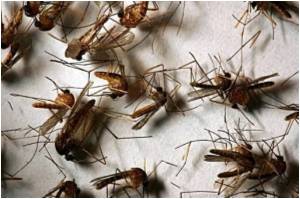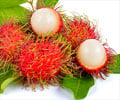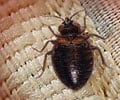
"One of the fundamental questions in biology is, 'how does a cell choose which genes it should turn on and which genes it should turn off?' By studying this question in odor-sensitive neurons of fruit flies, we hope to learn how cells make these choices, as well as to develop more effective odor-based insect repellents," said Carson Mille Yale University.
A study of four genes from a group of odor receptor genes in the fruit fly revealed that DNA in front of these genes contained enough information to tell the fly to turn on these genes in specific cells of the antenna.
Miller made an artificial reporter gene that used the regulatory DNA in front of an Odor receptor gene to control a test gene that could be easily monitored for expression. An entire set of such reporter genes were created, each containing less of the regulatory DNA.
The goal was to determine how short the regulatory region could be and yet still control the test gene normally. This helped Miller to identify where the important control elements lie in the regulatory DNA, and whether they serve to turn the gene on in cells where it is needed or to turn the gene off where it doesn't belong.
"The sense of smell is an Achilles heel for many insects and the more we learn about odor receptors the easier it will be to interfere with them to battle insect-borne disease and crop devastation. This study is a step forward in doing that by identifying the mechanism that results in the highly selective expression of 'smell genes'," said Mark Johnston, Editor-in-Chief of the journal GENETICS.
Advertisement
Source-ANI














